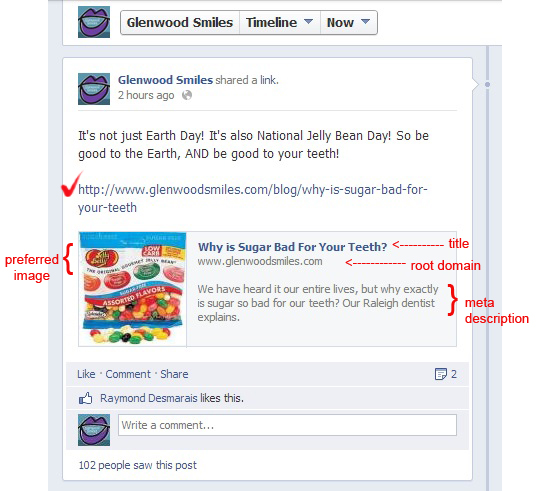1. Meta Descriptions
Meta Descriptions have been one of the earliest and longest surviving semantic markup elements. They’re possibly the most-influential as well, since they often appear as the entire snippet text in search results.2. Authorship Markup
Authorship allows the blog post author’s Google+ photo to appear alongside search results of your website pages. Which search result below stands out the most to YOU when you search for award winning web design?
3. Open Graph Protocol
The Open Graph API is a set of programming tools that let’s you get information in and out of social media. With Open Graph, social media sites such as Facebook, Google+ and Twitter can identify important elements of a webpage.
4. Video
Video listings in search results are inherently more attention-grabbing. Consumers like seeing videos of products and services, so this can help with click-through conversions as well. Which search result are YOU more likely to click on: a video thumbnail or standard text link?
5. Testimonials
Google allows local businesses to disclose that they have a testimonial by using semantic markup for reviews, and Google sometimes will display that information in conjunction with the business’s listings in SERPs.**Important Note About Semantic Markups**
Markups DO NOT guarantee your data will show up in Google search results. It is strongly recommended, but because of the unique algorithms of each search engine, search results can actually vary person to person, search by search.Interested in finding a web designer that will not only design a great looking website, but make sure it looks great on mobile devices like iPhones? Contact the responsive web design experts at TheeDigital in Raleigh, NC at 919-341-8901 or schedule a consultation.






